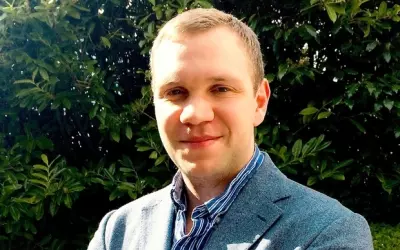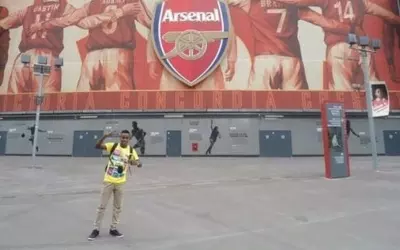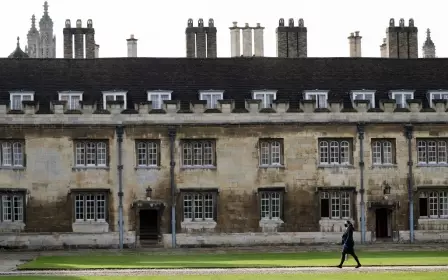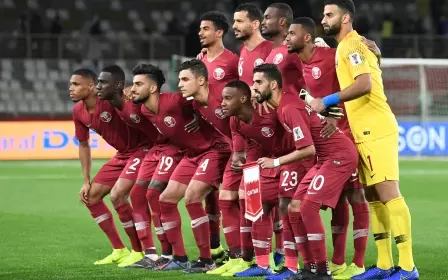UAE: Britons accuse Gulf state of torture before UN committee
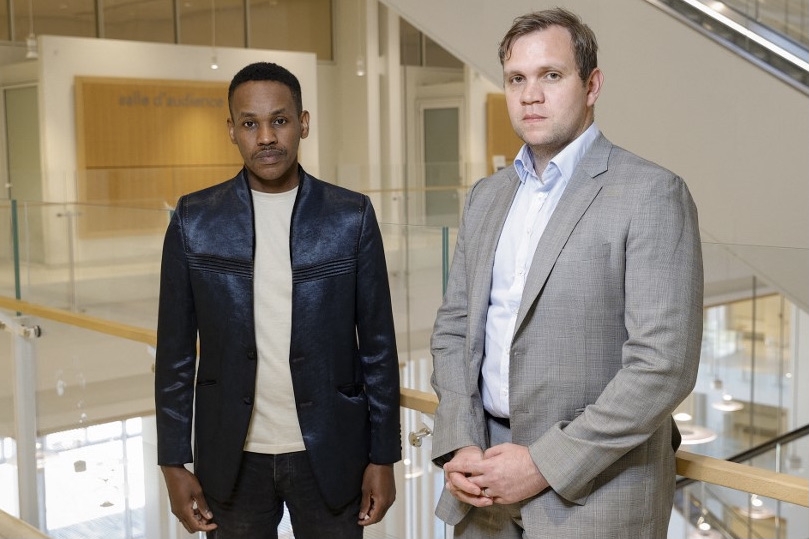
Two British men who had been detained in the United Arab Emirates gave evidence before a UN committee on torture on Tuesday, with one saying he had been subjected to solitary confinement and the other to abuse with an electric shock baton.
The UAE rejects the allegations.
Matthew Hedges and Ali Issa Ahmad testified before the Geneva-based committee on Tuesday in a rare public example of allegations of torture against the Gulf state. The committee is also reviewing other countries' records.
"I was held in solitary confinement for nearly seven months in a windowless room, no bed, no contact with the outside world and vulnerable to the whims of my interrogators," Hedges, an academic who visited the UAE for a research trip in 2018, told the committee. He was accused of spying.
In May 2021, Hedges issued civil proceedings in the High Court in London against four of the senior UAE officials who he says were involved.
He is claiming damages against the four men for assault, false imprisonment and the intentional infliction of psychiatric injury during his detention in Abu Dhabi from 5 May 2018 to 26 November 2018.
"On 5 May 2018, I was detained and tortured in the UAE. Three years later, I am still waiting for the truth and justice," Hedges said.
"The UAE authorities have refused to answer the complaint that was submitted to them through the UK Foreign Office. It is clear they have no interest in finding out who was responsible for my abuse."
'I lost my front tooth'
Ahmad, from Wolverhampton, said he was tortured with the baton "for wearing a Qatar T-shirt" while visiting the UAE on holiday to watch an Asian Cup football match in 2019 - a time of diplomatic tensions between the two neighbours. He was detained between 23 January and 12 February 2019.
"I lost my front tooth and still have scars on my body from it," he said.
During his four weeks in prison, Ahmad, 29, says he was subjected to racial and psychological abuse and torture, including being beaten, electrocuted, cut, and burned. At one point he was sent to a doctor and forced to sign a form saying that the injuries he suffered - including having one of his teeth knocked out - were self-inflicted.
"I’ve been abused and tortured and near killed in prison in the UAE… for wearing a football T-shirt. It’s unbelievable what they did to me," he told Middle East Eye in May 2021.
The day before he was due to appear in court, Ahmad said he was stabbed in the dark by an unknown assailant.
"I don’t know who did that - the authorities or the prisoners - they didn’t make any investigation into that," he told MEE.
When he finally appeared before a court on 12 February 2019, the judge accused him of "wasting police time".
"I said to the judge what happened to me and the judge said to me, ‘You want to finish and go home?’ and I said, ‘Definitely’, and then he decided to release me and fined me 1,500 UAE dirhams," said Ahmad.
"The same day they released me in the middle of the night without my documents or money or anything, they forced me to go out… they said to me you can come back in the morning and collect your stuff."
'Baseless and unfounded'
The UAE, which has yet to speak before the committee, said it rejected the allegations as "baseless and unfounded" in emailed comments ahead of the men's testimony, the broad substance of which was flagged in advance in documents to the committee.
It said it would respond in detail to the allegations as part of the hearings "with documentary evidence that rebuts their false claims".
"At all times, the UAE and its officials treated Mr Hedges and Mr Ahmad with respect, and not once did it subject either to any torture or other cruel, inhuman, or degrading treatment or punishment," it said.
The UAE ratified the 1984 UN convention against torture in 2012 and as such its record in complying with its terms is periodically subject to review by the committee, which is composed of 10 independent experts.
The committee is expected to release its findings later this month. The body has no enforcement mechanism but can follow up with non-compliant states. Both men now live in Britain.
Middle East Eye delivers independent and unrivalled coverage and analysis of the Middle East, North Africa and beyond. To learn more about republishing this content and the associated fees, please fill out this form. More about MEE can be found here.


